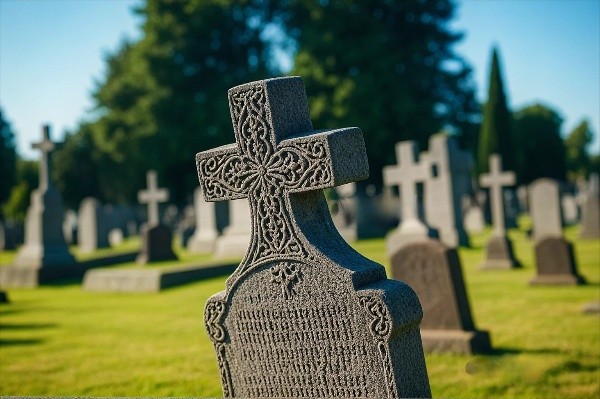Iran’s Plan to Strike Back Against the U.S.
Iran’s Military Preparations Following U.S. Attacks
Loading...

Officials have said displaying a cross in the cemetery is offensive to the relatives of Jewish troops laid to rest nearby
IDF Demands Removal of Cross from Fallen Soldier's Headstone
The Israel Defense Forces (IDF) has sparked outrage by demanding that the family of a deceased Christian soldier remove a cross from his gravestone or face the reburial of his remains. This situation has raised significant concerns regarding religious freedom and the treatment of non-Jewish soldiers in Israel. David Bogdanovsky, who immigrated to Israel from Ukraine in 2014, was killed in Gaza last December by an anti-tank rocket. His family has expressed deep distress over the IDF's actions, which they view as a violation of their son's identity and faith.
Official Justifications for the Demand
According to reports, the Israeli Defense Ministry sent a letter to Bogdanovsky's family, stating that the presence of a cross on a military headstone is against the law. The ministry cited a ruling from the IDF's chief rabbi, asserting that the sanctity of the Jewish cemetery is compromised by the display of a cross. Officials claimed they had received complaints from families of Jewish soldiers buried nearby, who expressed that the cross was offensive and hindered their ability to pray.
The ministry's stance is rooted in a broader context where military cemeteries in Israel are typically segregated by religion. However, a special law permits the burial of non-Jewish service members alongside their Jewish counterparts. This unique arrangement highlights the complexities of religious coexistence within the Israeli military framework.
Family's Emotional Response
Bogdanovsky's mother shared her anguish with the media, recounting her visit to her son's grave, where she discovered it covered in black cloth. "I don’t have words to describe the humiliation I felt," she stated, emphasizing her belief that her son, who sacrificed his life for the country, should not be treated as a second-class citizen. She expressed her anger and disbelief at the situation, noting that her son's Christian faith was an integral part of his identity.
In a heartfelt Facebook post, she pointed out that there are other graves with crosses in the same cemetery, questioning why her son was singled out. This inconsistency has fueled further outrage among supporters of the family, who argue that the IDF's actions are discriminatory and disrespectful to the memory of a fallen soldier.
Broader Implications and Context
The incident occurs against a backdrop of heightened tensions in Israel, particularly following the recent military operations in Gaza. Since the onset of these operations, which began after a deadly incursion by Hamas militants in October 2023, the conflict has resulted in significant casualties on both sides. The Central Bureau of Statistics in Israel estimated that Christians make up approximately 1.9% of the population, highlighting the minority status of Bogdanovsky's faith within the predominantly Jewish state.
This situation raises critical questions about the treatment of non-Jewish soldiers in Israel and the broader implications for religious freedom. As the IDF continues to navigate the complexities of a diverse military, the demand for the removal of the cross from Bogdanovsky's gravestone serves as a poignant reminder of the challenges faced by minority communities in the country.
Conclusion
The controversy surrounding David Bogdanovsky's gravestone reflects deeper societal issues regarding religious identity and coexistence in Israel. As the family grapples with their loss and the demands of the military, the incident has ignited discussions about the rights of non-Jewish soldiers and the respect owed to their beliefs. The outcome of this situation may have lasting implications for how Israel addresses the diverse identities within its armed forces and the broader society.
Editor
Iran’s Military Preparations Following U.S. Attacks
Troops remain in five strategic locations, raising fears of renewed tensions and long-term occupation.
Opposition forces have taken control of the capital after a significant offensive. Here is how it unravelled.
